LECTURE SERIES ▼
Explaining Political Behaviour and Identity: Macro- and Micro-Level Perspectives
23 - 25 May 2018, University of Bamberg FG1/00.08.

____Workshop concept
How do people acquire and process the information they use to make decisions about politics? How are their political identities shaped? How do voters decide which political party to endorse and which candidate to vote for in the upcoming elections? These are the core questions that underlie the concepts of political participation and representation, which have been addressed in the last decades by a number of renowned researchers across disciplines.
Given the interplay of individual-level characteristics with the constraints placed on citizens by political parties and political systems, political scientists have recognized the need to draw on psychological concepts to model people's political behavior. These tendencies are, in turn, closely linked to the concept of representation: how and why do voters choose their representatives. In other words, who is selected to sit at the table and trusted with the power to govern and lead. The rules of the game often become explicit when these issues are investigated against the backdrop of the political presence of the traditionally underrepresented groups and ethnic minorities. Uncovering the factors affecting the absence from or silence during the deliberation process is just as important as investigating the effects the presence of such groups has on the existing political structures.
To tackle these broad and important questions, we have designed a lecture series to bring together leading experts from Europe and the US from both political science and psychology. Over the course of 3 days, from May 23 to May 25, we will discuss findings, address open questions and tackle the challenges of transdisciplinary research in a set of lectures, workshops and discussion rounds. ◼
........................................................................................................................................................
___ Programme
Note: All lectures are open, but please note that seats are limited and cannot be reserved.
// WEDNESDAY, 23 MAY
10.00 - 11.00 Keynote Ralph Hertwig
11.00 - 11.30 Break
11.30 - 13.00 Richard R. Lau, David P. Redlawsk Interactive talk
_please email isabel.winnwa(at)uni-bamberg.de for lecture material
13.00 - 14.00 Lunch Break
14.00 - 15.00 Keynote Richard Fox
15.00 - 15.30 Break
15.30 - 16.30 Keynote Elisabeth N. Simas
16.30 - 17.00 Break
17.00 - 18.00 Keynote Richard R. Lau (BAGSS Monthly)
_please email isabel.winnwa(at)uni-bamberg.de for lecture material
19.30 Dinner (by invitation only)
_Ralph Hertwig:
In the Beginning Was Experience – Not The Word
_Richard R. Lau & David P. Redlawsk:
Studying Judgment and Decision Making in Dynamic Social Situations
_Richard Fox:
Experimental Research Concerning Factors that Promote Women's Engagement in Politics
_Elisabeth N. Simas:
System Justification and Evaluations of Female Candidates
_Richard R. Lau:
Does Political Knowledge Still Matter in the Internet Age
// THURSDAY, 24 MAY:
09.00 - 10.30 Workshop Jon Krosnick
10.30 - 11.00 Break
11.00 - 12.00 Keynote Liza Mügge
12.00 - 13.00 Lunch Break
13.00 - 14.30 Workshop Jon Krosnick
14.30 - 15.00 Break
15.00 - 16.30 Workshop Ekaterina R. Rashkova
16.30 - 17.00 Break
17.00 - 18.30 Panel discussion
19.30 Dinner (by invitation only)
_Jon Krosnick:
Social Psychology Under the Microscope: Do Our Classic Experiments Replicate When Participants Are Representative of the General Public rather than Convenience Samples of College Students?
_Liza Mügge:
Intersectionality in the Study of Politics: Challenges and Opportunities
_Jon Krosnick:
The Accuracy of Online Surveys with Non-probability Samples of People Who Volunteer to Do Surveys for Money
_Ekaterina R. Rashkova:
What Is Substantive Representation and How Can We Measure It? A workshop, in which the theoretical concept of substantive representation, and its most recent measurement methods, will be discussed.
// FRIDAY, 25 MAY:
09.30 - 10.30 Keynote Maria Sobolewska
10.30 - 11.00 Break
11.00 - 12.00 Keynote Didier Ruedin
12.00 - 13.00 Break
13.00 - 14.30 Workshop Martin Rosema
14.30 - 15.00 Break
15.00 - 16.30 Workshop Alexa Bankert
_Maria Sobolewska:
Unpacking Minority Representation: Outcomes, Motivations and Meaning.
_Didier Ruedin:
The Political Representation of Women and Ethnic Groups in Legislatures Around the World
_Martin Rosema:
Theoretical and Methodological Contributions from Political Science and Psychology to the Study of Voting
_Alexa Bankert:
Workshop on the Measurement and Conceptualization of Partisan Identity in Both the U.S. and Europe
___ Lectures by
Alexa Bankert, University of Georgia (25 May)
Richard Fox, Loyola Marymount University (23 May)
Ralph Hertwig, MPI (23 May)
Jon Krosnick, Stanford University (24 May)
Richard R. Lau, Rutgers University (23 May)
Liza Mügge, University of Amsterdam (24 May)
Ekaterina R. Rashkova, University of Utrecht (24 May)
David P. Redlawsk, University of Delaware (23 May)
Martin Rosema, University of Twente (25 May)
Didier Ruedin, University of Neuchâtel (25 May)
Elisabeth N. Simas, University of Houston (23 May)
Maria Sobolewska, University of Manchester (25 May)
Maria Spirova, Leiden University (25 May)
........................................................................................................................................................
___Service Information
Please download the campus map, as well as further information regarding Wifi, public transportation here(237.3 KB).
........................................................................................................................................................
___Organizers
The lecture series is organized by an interdisciplinary team of doctoral fellows of the Bamberg Graduate School of Social Sciences:
Oana Georgiana Buta, Political Science
Agata Maria Kraj, Political Science and Political Psychology
Isabel Winnwa, Political Science
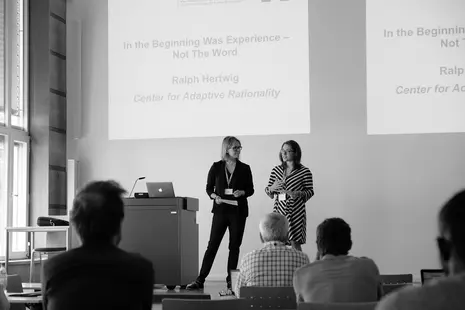
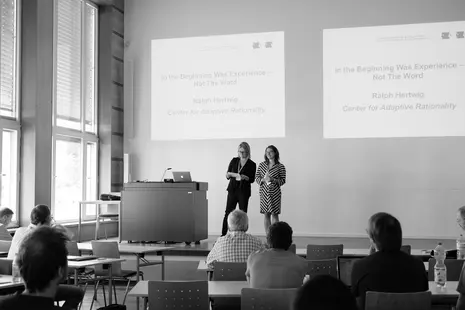
___ Guest Profiles
Alexa Bankert, University of Georgia, United States of America
Alexa Bankert is an Assistant Professor in Political Science at the University of Georgia since August 2016. She holds her B.A. from the Free University of Berlin and a Ph.D. from Stony Brook University. She won also several awards and grants, given by distinguished associations such as the American Political Science Association. Her research focuses on political psychology, studying the role of identity in political behavior, using quantitative methods and experiments.
"Partisan Identity strength is an important predictor of political behavior in the United States."
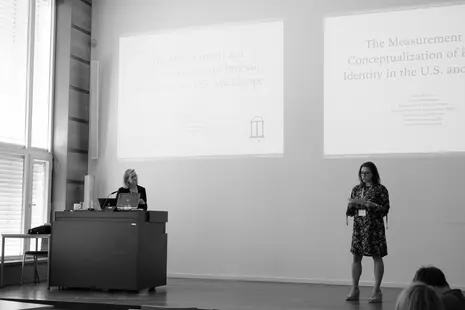
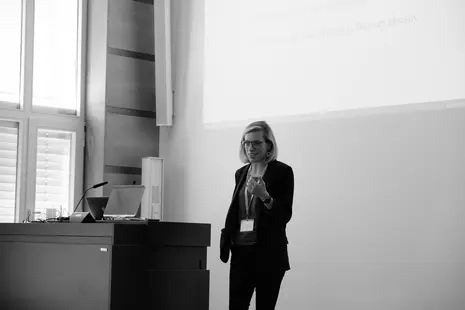
Richard Fox, Loyola Marymount University Los Angeles, United States of America
Richard Fox is a Professor of Political Science at the Loyola Marymount University in Los Angeles. After receiving his Ph.D. from the University of California, Santa Barbara, he was appointed a professor and chair of the political science department at Union College in Schenectady, New York. He also held several visiting positions at universities such as Rutgers University, College Year in Athens, and colleges affiliated with Mumbai University. His research focuses especially on the U.S. Congress, elections, media and politics and gender politics. In order to support his research, the National Science Foundation offered him in 2012 a grant to explore the political interests and ambition of high school and college students.
"All lectures fit perfectly together, it is a great gathering so far. Social scientists presenting their work!"
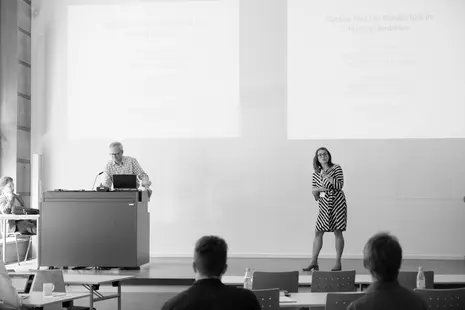
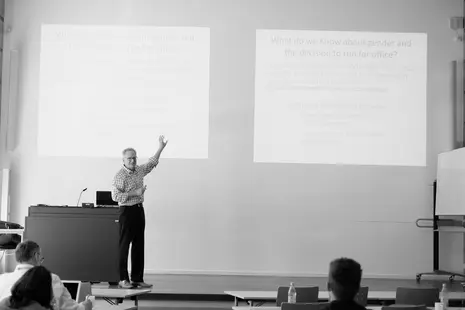
Ralph Hertwig, Max Planck Institute for Human Development, Germany
Ralph Hertwig has been the Director of the Center for Adaptive Rationality at the Max Planck Institute for Human Development in Berlin since 2012. He is one of the leading experts in the psychology of human decision-making and judgment, and has extensively published on the bounded rationality of decision-making, nudging and boosting, and the difference between experience-based and description-based assessment of risk. In 2017, he was awarded the Leibniz Prize by the German Research Foundation for his outstanding research on the possibilities and limitations of human rationality. Hertwig holds a doctorate in psychology from the University of Konstanz and has subsequently worked at the Max Planck Institute for Psychological Research in Munich, Columbia University, the Free University of Berlin, where he obtained his habilitation, and the University of Basel, where he was appointed Professor of Cognitive Science and Decision Psychology.
"Most of the decisions in the world are based on experience."
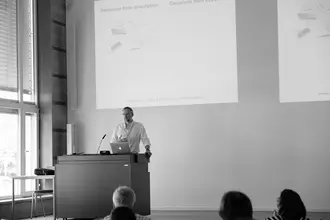
Jon Krosnick, Stanford University California, United States of America
Jon Krosnick is the Frederic O. Glover Professor in Humanities and Social Sciences, Professor of Communication, Political Science and Psychology at Stanford University. Winner of the American Association for Public Opinion Research’s Lifetime Achievement Award, he is a social psychologist who does research on attitude formation, change, and effects, on the psychology of political behavior, and on survey research methods. Among the topics explored by Jon Krosnick’s political psychology research are related to how policy debates affect voters’ candidate preferences, how the news media shape which national problems citizens think are most important for the nation and shape how citizens evaluate the President’s job performance. Another important line of research he has pursued concerns the so-called issue publics, investigating the effects of becoming very knowledgeable about and emotionally invested in a government policy issue affects people’s political thinking and participation. He is also interested in how people’s political views change as they move through the life-cycle from early adulthood to old age. His recent work in survey methodology has explored the impact of mode of data collection (e.g., face-to-face, telephone, Internet) on response accuracy and the impact of survey response rates on substantive results.
"You don't need benchmarks to see this craziness."
"The event is a rich interdisciplinary discussion of vital issues of political scientists. You get exposed to work you usually don't hear about, because you're used to be in your own little world. The lectures opened my mind."
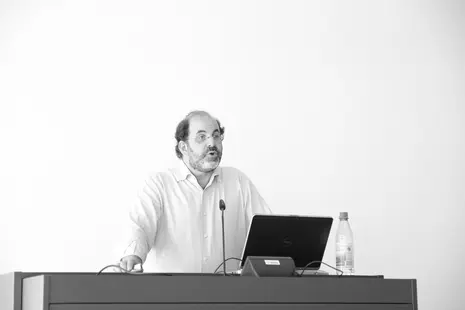
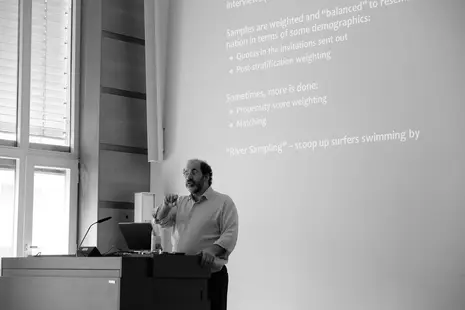
Richard R. Lau, Rutgers University, United States of America
Richard R. Lau is Professor of Political Science at Rutgers University. He is a leading expert in the field of political cognition and political decision-making and has extensively published on information processing in voting. His collaborative work with Dave Redlawsk has been awarded the Alexander George Award by the International Society of Political Psychology in 2007. His research interests also include the role of self-interest in political attitudes and behavior, media effects in political campaigns, the effects of metaphors in public opinion and political persuasion and the institutional means of improving democratic representation. He received his M.A. and Ph.D. in Social Psychology from the University of California and his B.A. in Psychology from Stanford University. Before coming to Rutgers University in 1990, he taught at Carnegie Mellon University.
"Political knowledge is the basic currency of democracy."
"It was a great and wonderful event with many interesting lectures. I especially liked the very first one about the difference between experience-based and description-based decision-making."
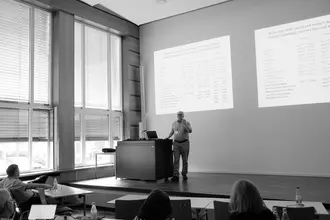
Liza Mügge, University of Amsterdam, The Netherlands
Liza Mügge is associate Professor in political science and director of the Amsterdam Research Center for Gender and Sexuality both at the University of Amsterdam. She has been a residential fellow at the Netherlands Institute for Advanced Studies in the Humanities and Social Sciences (2016-2017) and Women and Public Policy Program at Harvard University (2014-2015) as well as visiting scholar at the Minda de Gunzburg Center for European Studies at Harvard University (2012). Liza is the recipient of competitive third-party grants, such as the VENI (2013) and VIDI (2017) of the Netherlands Organization for Scientific Research. Her research interests include political equality and representation, intersectionality, politics of gender, transnationalism and diaspora politics and mixed methods.
"Reports about discrimination and exclusion in parliament are much higher for women than they are for men."
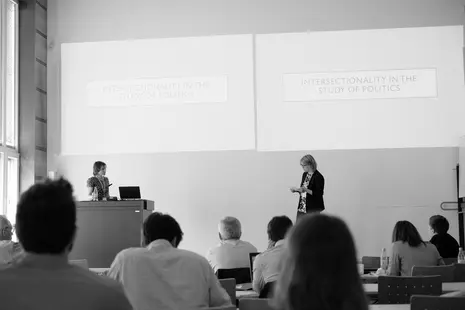
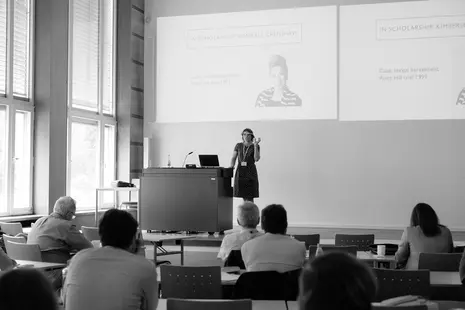
Ekaterina Rashkova, University of Utrecht, The Netherlands
Ekaterina R. Rashkova is an Assistant Professor at the Utrecht School of Governance (USG), Utrecht University, the Netherlands. Her research focuses on the effect of institutional arrangements on political behavior. At the moment she is interested in substantive representation of women in conservative parties and on comparative electoral law and its effect on party system development. Prior to joining USG, Ekaterina has worked at the University of Innsbruck (Austria), Leiden University (Netherlands) and Sussex University (UK). During the 2015-2016 academic year, she was a fellow at the Netherlands Institute for Advanced Studies (NIAS) as a EURIAS Junior Fellow. Her project there examined the development and change in electoral law in ten Central and East European states. Ekaterina received her PhD in Political Science from the University of Pittsburgh (USA) in 2010. Her dissertation Political Learning and the Number of Parties: Why Age Matters won the UniCredit and Universities Foundation Best CEE PhD Thesis Award in May 2011. She is co-editor of "European Political Science".
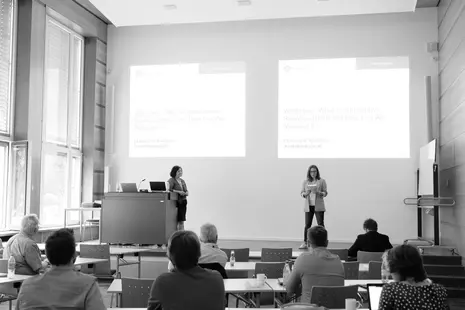
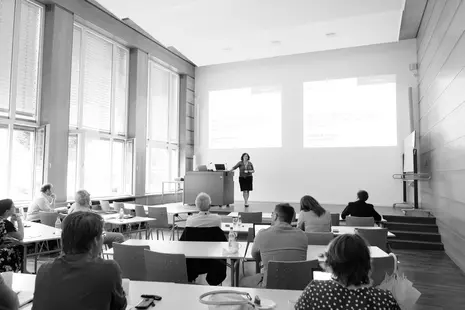
David P. Redlawsk, University of Delaware, United States of America
David P. Redlawsk is James R. Soles Professor and Chair of Department for the Department of Political Science at the University of Delaware since 2016. He previously served as Director of the Eagleton Center for Public Interest Polling and Professor of Political Science at Rutgers University, where he directed the Rutgers-Eagleton Poll. He holds a doctorate in political science from Rutgers University and has extensively worked on the political psychology of voting, information processing and the limits of rationality in political decision-making and the interaction of information and emotion in politics. He also held positions at the University of Iowa, where he was the founder of the Iowa Hawkeye Poll, the Co-Founder and Director of the Obermann Graduate Institute on Engagement as well as the Iowa Social Science Research Center. He was a Professor at Drake University (Des Moines).
"Behavioral decision theory has two interrelated facets, normative and descriptive."
"There have been very interesting talks and especially the very first was worth coming."
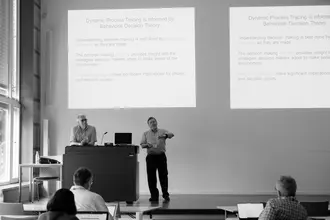
Martin Rosema, University of Twente, The Netherlands
Martin Rosema is assistant professor of political science at the University of Twente and the co-editor of the highly-ranked academic journal Political Psychology. He is an Alumnus of the University of Cambridge and University of Leiden, where he pursued his Ph.D. on the psychology of voting. He was also a guest lecturer at the University of College Utrecht and the co-director of the Dutch Parliamentary Election Study. His main area of interest is voting behavior, with a particular focus on the psychology of voting as well as political representation, referendums and voting advice applications.
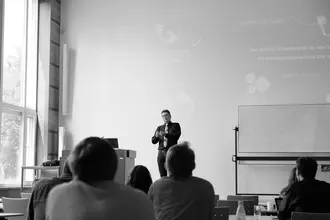
Didier Ruedin, University of Neuchâtel, Switzerland
Didier Ruedin is a senior researcher and lecturer at the Swiss Forum for Migration and Population Studies at the University of Neuchâtel and a visiting research fellow at the African Centre for Migration and Society at the University of the Witwatersrand. He obtained his M.Sc. and D.Phil. in Philosophy from the University of Oxford and subsequently he was a visiting fellow at the University of Vienna and University of Kentucky. His work focuses on reactions to immigration and diversity as well as discrimination, issue politicization and individual attitudes towards immigrants. He also investigates the political representation of women and ethnic groups in national parliaments.
"Countries that have increased the number of women in parliament over time have also shown changes in attitudes towards women leadership."
"The lectures are very interesting. Actually I had a lot to do this week, but when I received the invitation for this lecture series I immediately accepted it, because the BAGSS has a very good reputation and expertise."
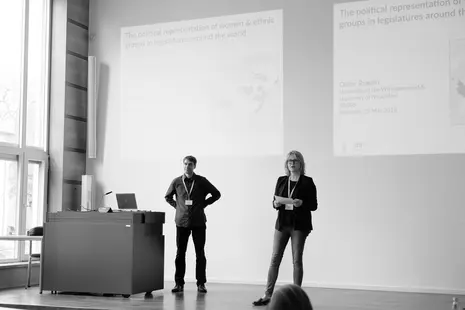
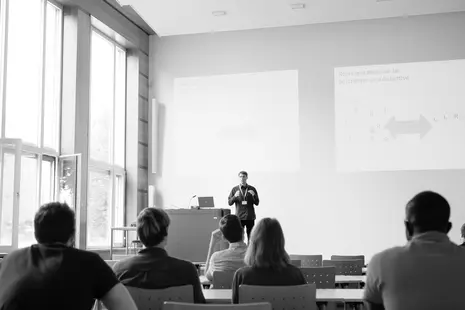
Elisabeth N. Simas, University of Houston, United States of America
Elizabeth N. Simas received her Ph.D. from the University of California, Davis. She is currently an Assistant Professor in the Political Science department at the University of Houston, TX. Her research uses survey and experimental data to explore the behavior of both candidates and voters in U.S. elections. More specifically, her work looks at the causes and consequences of candidate position-taking and how non-policy factors influence voter decisions.
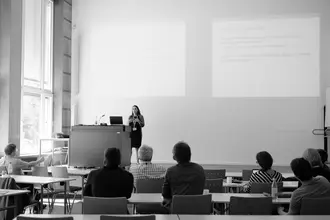
Maria Sobolewska, University of Manchester, United Kingdom
Maria Sobolewska is a Senior Lecturer in Politics at the University of Manchester. She has been involved in several projects dealing with the representation of ethnic minorities in Britain, such as Racism30YearsOn, Ethnic Minority British Election Survey in 2010 and PATHWAYS. Her interests also include issues of political identity. Her main expertise is on comparative politics, focusing on issues of political integration and the representation of ethnic minorities in Britain, public perceptions of ethnicity, immigrants and integration, and the production and framing of public opinion of British Muslims.
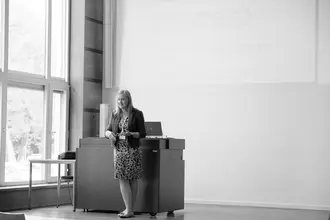
Maria Spirova, Leiden University, The Netherlands
Maria Spirova is a senior lecturer in Comparative Politics and International Relations at the University of Leiden and the Director of Studies at the Institute of Political Science She holds two Master’s Degrees from the Central University of Budapest, and a Ph.D. in political science from University of Wisconsin – Milwaukee. She was a visiting fellow at the Ghana Center for Democratic Development and European University Institute, Florence, Italy. She is a comparative politics scholar working on political parties, especially on party patronage and corruption, and on the democratic representation of ethnic minorities.
........................................................................................................................................................
MAIN PAGE | CONTACT | LEGAL | PRIVACY POLICY | DATENSCHUTZ | IMPRESSUM
© Bamberg Graduate School of Social Sciences
Image Credits: © Bamberg Graduate School of Social Sciences